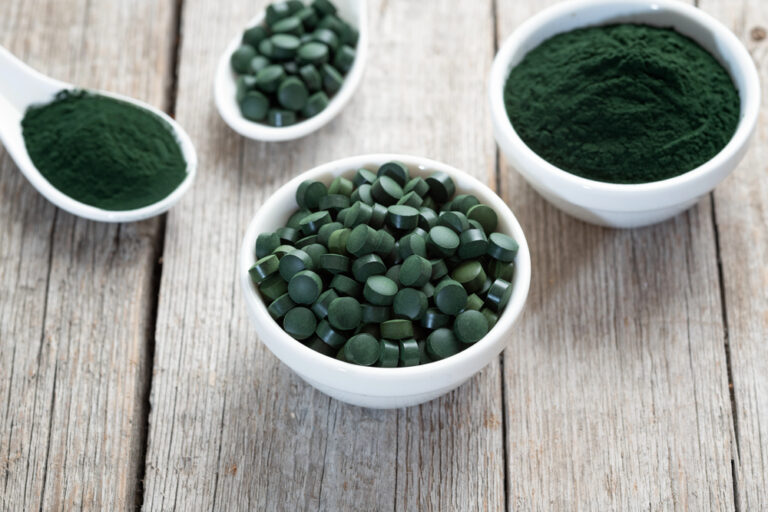Introduction
Bitter herbs have long been cherished for their remarkable ability to restore balance, detoxify the body, and enhance vitality. Used for centuries in traditional medicine systems, these potent botanicals are making a strong comeback in modern wellness. Whether you’re seeking natural remedies for digestion, improved metabolism, or overall vitality, bitter herbs hold the key. Their distinct taste might be intense, but their benefits are even more powerful. This article explores twelve transformative ways bitter herbs can enhance your health and how to integrate them safely into your daily routine.
1. The Science Behind Bitter Herbs
The power of bitter herbs lies in their ability to stimulate the body’s digestive and detoxification processes. The bitter taste triggers receptors on the tongue that activate saliva, gastric acid, and bile production. This chain reaction helps your body break down food efficiently, absorb nutrients, and eliminate toxins. Herbalists consider this response essential for maintaining a healthy gut and liver function. Scientific studies support these traditional claims, confirming that compounds like sesquiterpene lactones found in bitter herbs can promote bile flow and support liver regeneration.
2. Boosting Digestion Naturally
One of the most recognized benefits of bitter herbs is their capacity to enhance digestion. Modern diets, often high in sugar and fat, dull our natural bitter receptors. This can slow digestion and contribute to bloating, heartburn, or indigestion. Incorporating bitter herbs before meals reignites this digestive spark. When consumed as teas, tinctures, or tonics, they help prepare your stomach for optimal food breakdown. Herbs like gentian, wormwood, and dandelion root are among the most effective for stimulating digestive secretions and improving gut motility.
3. Supporting Liver Detoxification
The liver plays a critical role in filtering toxins from your body, and bitter herbs can help it perform more efficiently. Herbs such as milk thistle, artichoke leaf, and chicory root are prized for their hepatoprotective properties. They help regenerate liver cells, enhance bile production, and assist in flushing waste through the gallbladder. These herbs also protect against oxidative stress caused by processed foods, alcohol, and environmental pollutants. Regular consumption can significantly improve liver function and overall detoxification capacity.
4. Regulating Blood Sugar Levels
Bitter herbs also play an essential role in stabilizing blood sugar levels. Compounds in herbs like fenugreek, gymnema sylvestre, and bitter melon can help increase insulin sensitivity and support glucose metabolism. They are particularly beneficial for people managing type 2 diabetes or insulin resistance. Bitter herbs help reduce sugar cravings by balancing the body’s response to carbohydrates. Their bitter taste signals the body to slow down glucose absorption, reducing post-meal spikes in blood sugar.

5. Strengthening Gut Microbiome
Your gut microbiome thrives when balanced, and bitter herbs contribute to this harmony. These herbs have mild antimicrobial and antifungal properties that help eliminate harmful bacteria while supporting the growth of beneficial gut flora. Herbs like goldenseal, burdock root, and gentian root are especially effective for maintaining microbial balance. A healthy gut translates to better nutrient absorption, stronger immunity, and improved mood due to the gut-brain connection.
6. Enhancing Appetite Regulation
Bitter herbs are nature’s appetite regulators. They can either stimulate or suppress appetite depending on when and how they’re used. Consumed before meals, they promote hunger and prepare the body for digestion. Taken afterward, they can help reduce overeating and sugar cravings. This dual effect makes bitter herbs valuable tools for managing weight naturally. They help tune your body’s signals for genuine hunger versus emotional eating.
7. Reducing Inflammation Naturally
Inflammation is at the root of many chronic conditions, from arthritis to heart disease. Bitter herbs such as turmeric, burdock, and andrographis possess strong anti-inflammatory compounds that help reduce internal inflammation. Their antioxidant properties neutralize free radicals, preventing cellular damage. Regular use can alleviate symptoms of pain, swelling, and fatigue associated with chronic inflammation, supporting a more resilient immune system.
8. Promoting Clearer Skin
Because bitter herbs aid in detoxification and liver health, they indirectly benefit the skin. Conditions like acne, eczema, and psoriasis often arise from internal imbalances or toxin buildup. Herbs like dandelion, burdock, and neem help cleanse the blood and reduce inflammation that contributes to breakouts. As the liver and digestive system function more efficiently, the skin often becomes clearer, brighter, and healthier.
9. Supporting Hormonal Balance
The liver is responsible for metabolizing hormones, and bitter herbs that support liver function can help balance estrogen and other hormones. This makes them useful for easing PMS, menopause symptoms, or hormonal acne. Herbs like milk thistle and dandelion help process excess hormones and regulate endocrine function. When combined with a nutrient-rich diet, they can bring about noticeable improvements in mood, energy, and reproductive health.
10. Energizing Without Caffeine
Unlike stimulants, bitter herbs provide a steady boost in energy without causing crashes. By improving digestion, nutrient absorption, and liver function, they enhance cellular energy production. Adaptogenic bitter herbs like rhodiola and eleuthero help the body cope with stress while sustaining vitality. This makes them ideal alternatives to coffee or energy drinks for long-lasting energy and mental clarity.
11. Strengthening Immunity
Bitter herbs play a significant role in immune defense. Herbs like andrographis, echinacea, and goldenseal enhance the body’s natural resistance to infections. They stimulate white blood cell production and improve lymphatic circulation, ensuring the body can quickly respond to pathogens. Regular use of these herbs during seasonal changes can help prevent colds, flu, and other immune challenges.
12. How to Use Bitter Herbs Safely
While bitter herbs offer numerous benefits, proper use is essential. They can be consumed as tinctures, teas, or capsules, depending on personal preference. Beginners should start with small doses, as the taste can be intense. Some herbs, like wormwood, are very strong and should only be used under professional supervision. Pregnant or breastfeeding individuals should consult a healthcare provider before using any herbal product. It’s also important to choose high-quality organic herbs to avoid contaminants.
Integrating Bitter Herbs Into Your Daily Routine
Start your day with a cup of dandelion or artichoke tea to wake up your digestion. Before meals, a few drops of a gentian tincture can prepare your stomach for food. For ongoing detoxification support, rotate herbs like milk thistle, burdock, and chicory in your wellness regimen. When used consistently, these herbs help restore natural balance, vitality, and energy. Over time, your taste buds may even grow to appreciate their bitterness — a sign that your body is back in tune with nature’s medicine.
Conclusion
Bitter herbs are one of nature’s most underrated yet powerful healing allies. They don’t just improve digestion; they enhance every system in the body by supporting detoxification, metabolism, and energy. Their unique compounds restore equilibrium where modern lifestyles have disrupted it. When used wisely, these botanicals can transform your health and bring a renewed sense of vitality. Embracing their taste is a small step toward reclaiming the body’s natural rhythm and resilience.
References
- National Center for Biotechnology Information – Herbal Medicine
- World Health Organization – Traditional Herbal Remedies
- PubMed – The Role of Bitters in Human Health




